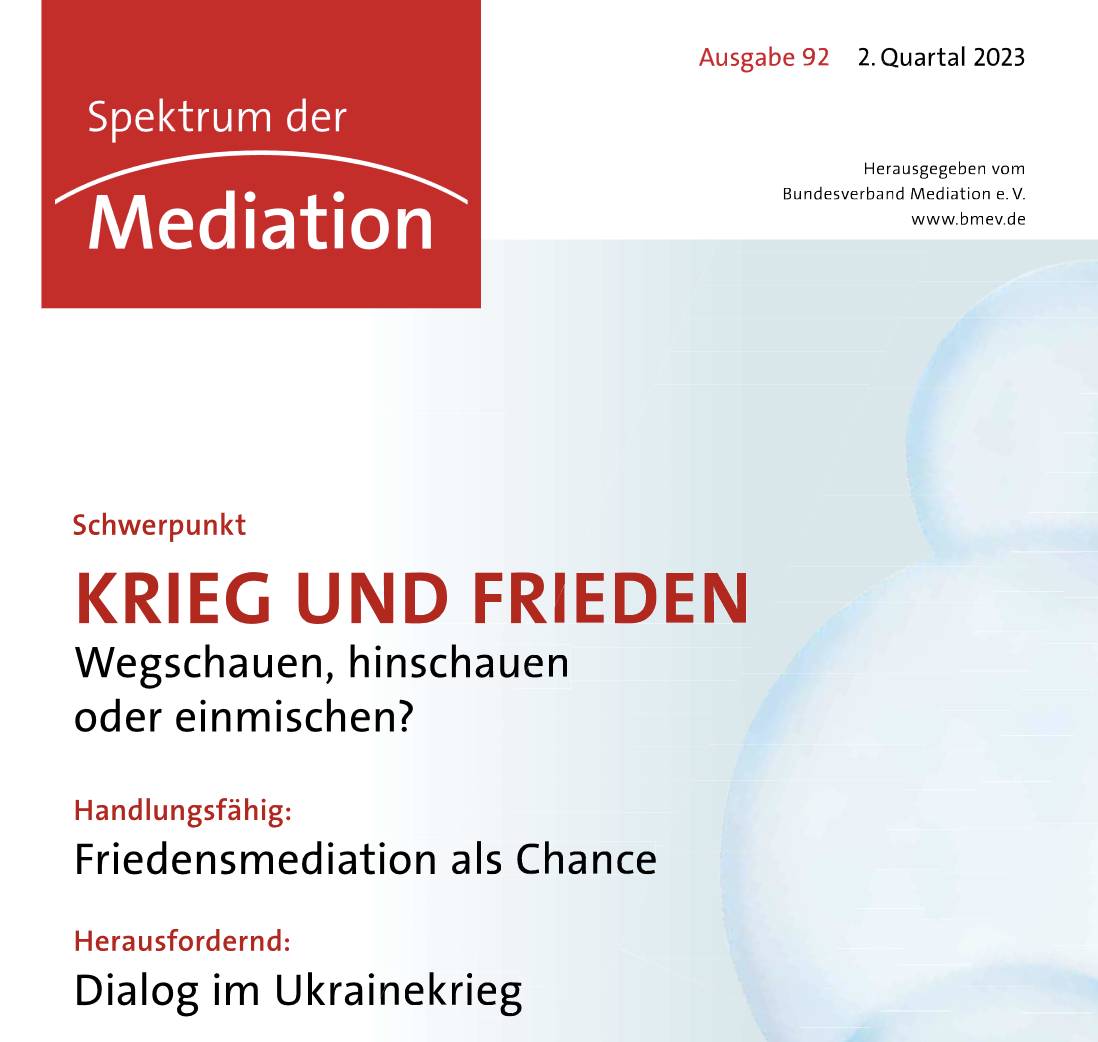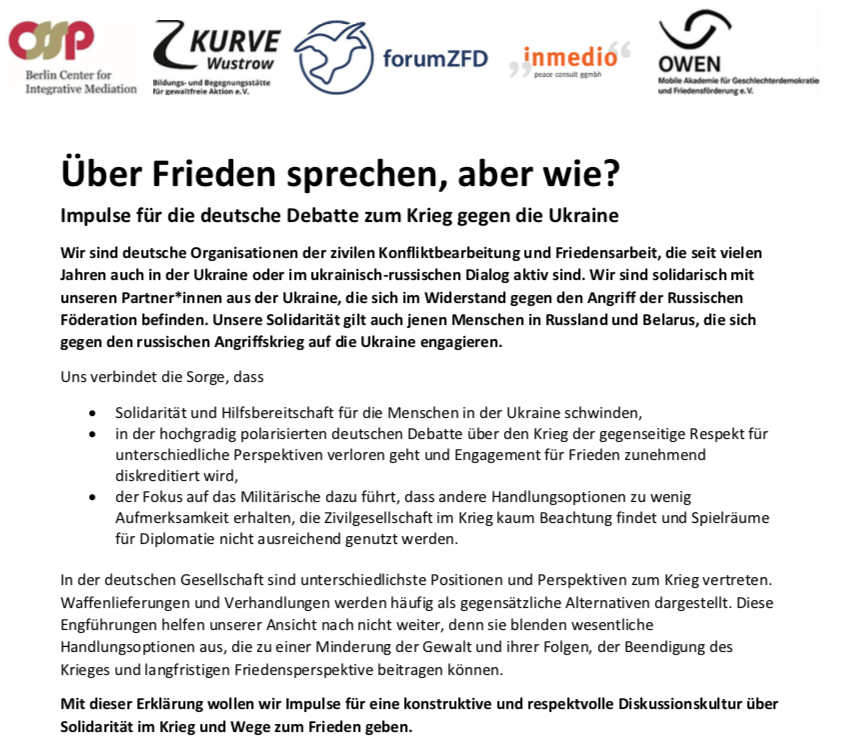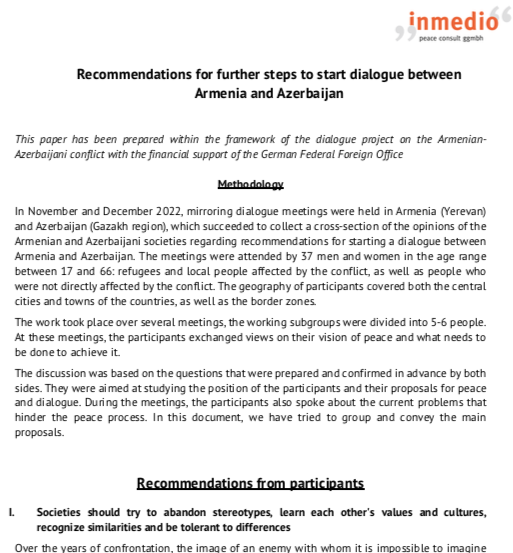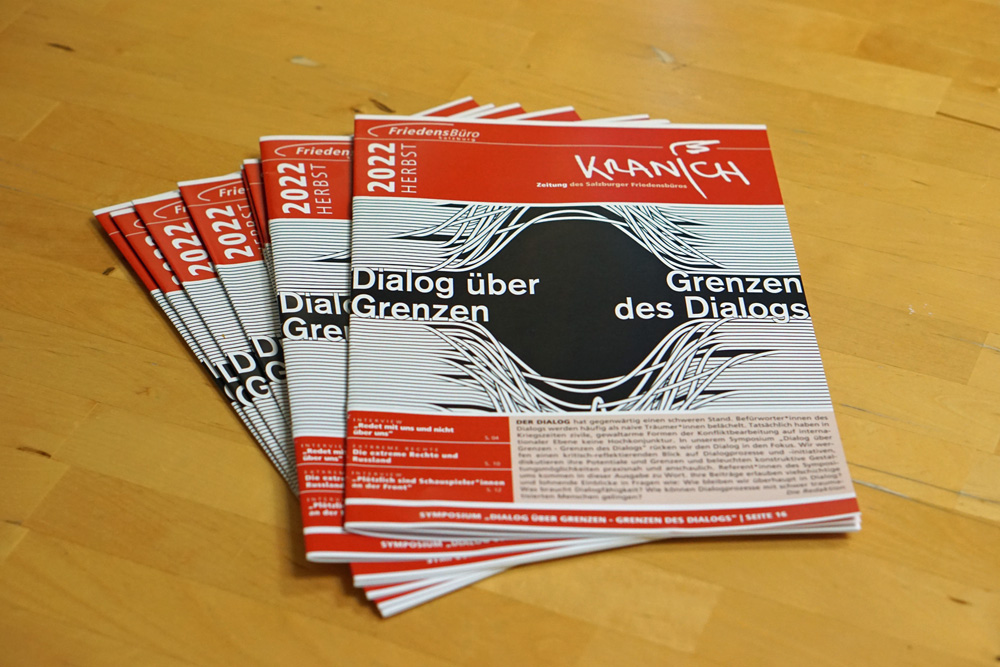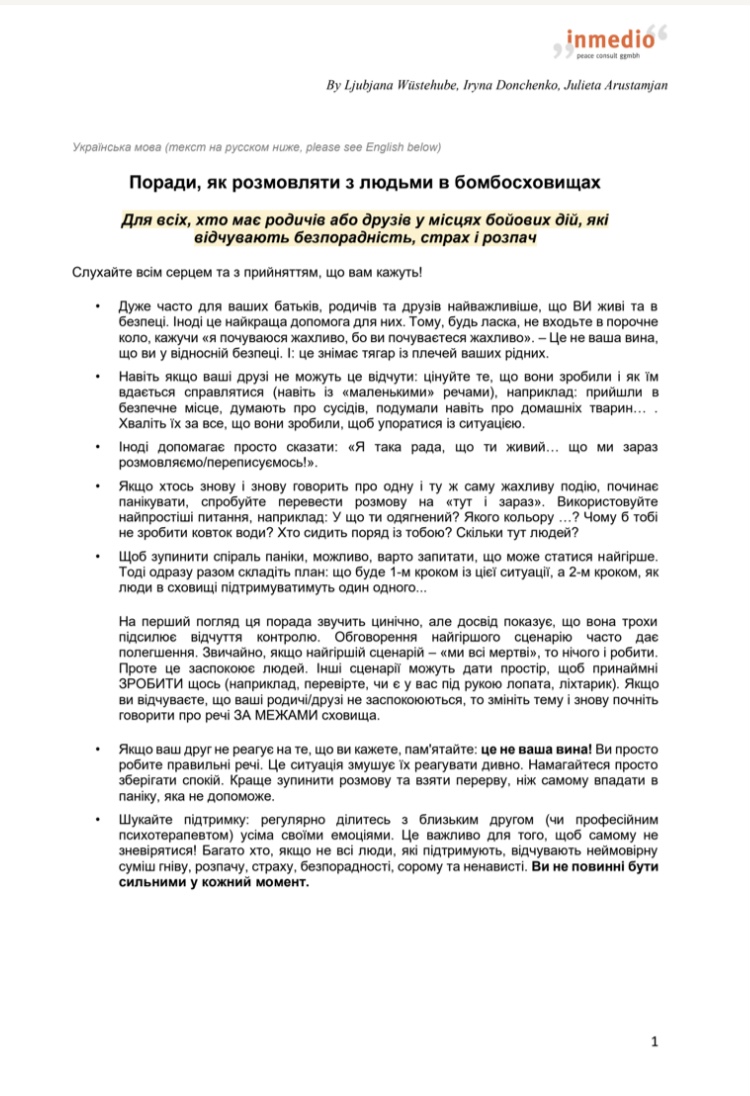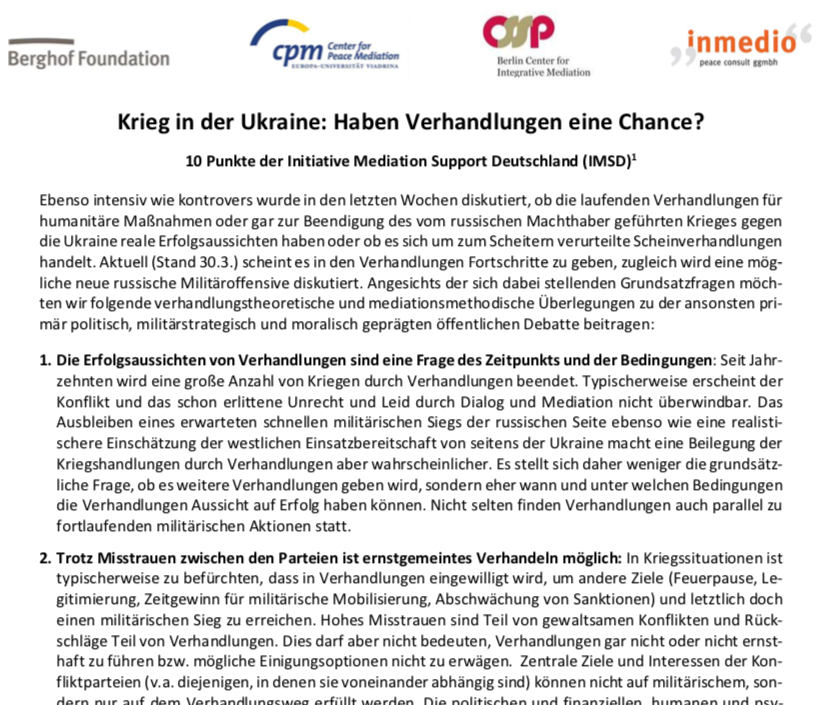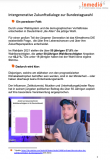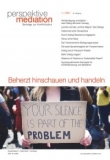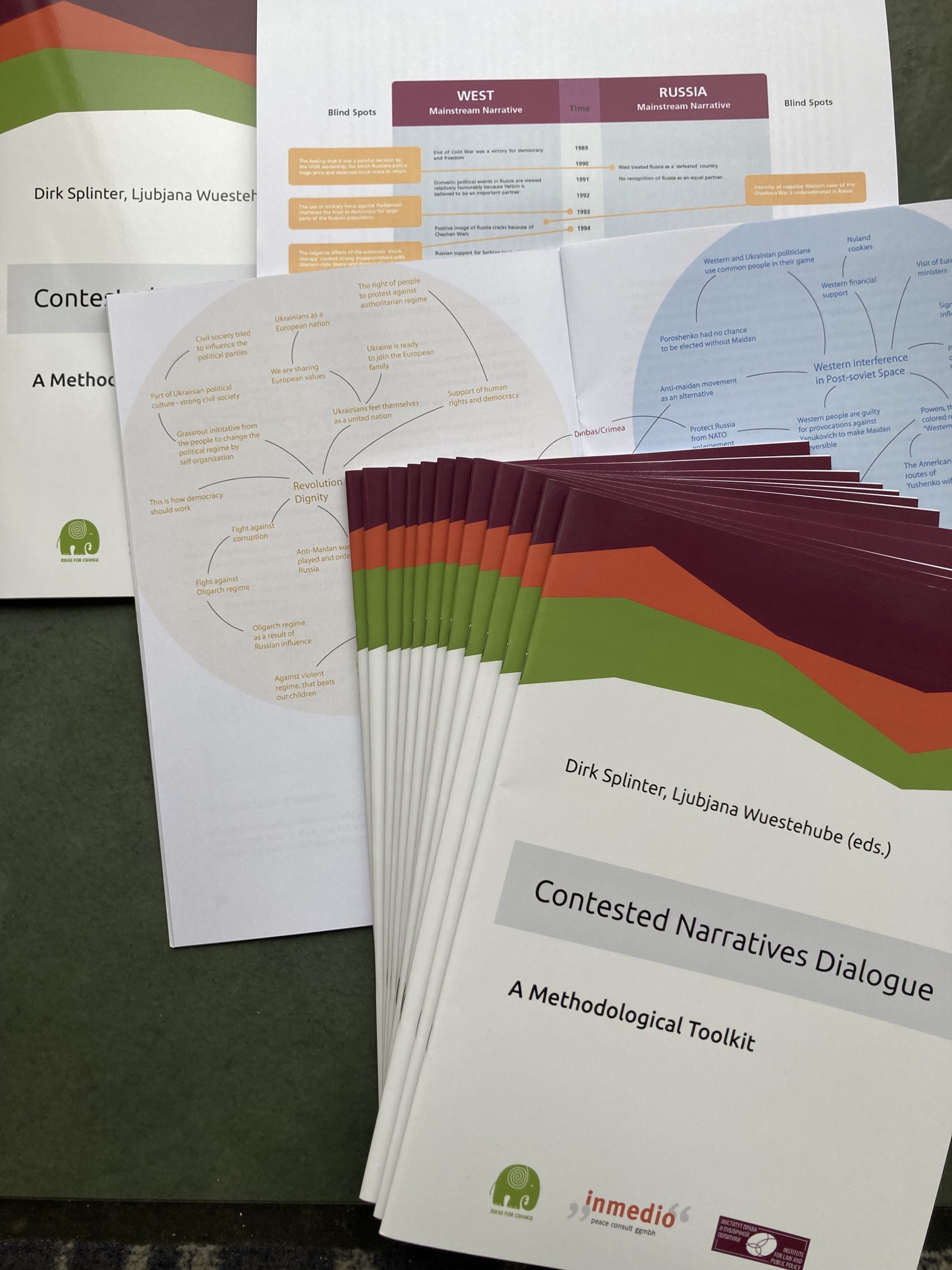Publikationen
Perspektiven mediativen Dialogs im Kontext des Krieges gegen die Ukraine
Welche Rolle (sollten) angesichts des Krieges gegen die Ukraine zivilgesellschaftliche Dialoge in verschiedenen Formaten spielen? Verschiedene ukrainische und russische Dialogteilehmende und Kooperationspartner von inmedio sowie andere Dialogakteure kommen hier zu Wort. In: Spektrum der Mediation #92 (2. Quartal 2023).
Über Frieden sprechen, aber wie?
Ein Impulspapier zur deutschen Debatte über den Krieg gegen die Ukraine - von fünf Organisationen der zivilen Konfliktbearbeitung und Friedensarbeit: forum zfd, Kurve Wustrow, OWEN, inmedio, CSSP (Mai 2023).
Recommendations for further steps to start dialogue between Armenia and Azerbaijan
This paper was created in November/december 2022 by participants of the dialogue workshops in both countries in the framework of our project supported by the German MFA. It is available in Azerbaijani and Armenian.
Mehr Dialog wagen … aber doch nicht jetzt! Oder: Jetzt erst recht?
Grenzen und Möglichkeiten des Dialogs im Angesicht von Russlands Angriff auf die Ukraine. In: Kranich 3/2022, Friedensbüro Salzburg
How to talk to people in bunkers
So many Ukrainans who live abroad or had to flee communicate with their family members or friends who have to stay in cellars, metro stations, bomb shelters and try to provide remote phychological support while their own heart is broken, too. On request of a network of Ukrainian expatriates, we drafted a short guidance for 'How to talk to people in bunkers' in Ukrainan, Russian and English. It is based on the recent experience of our Armenian collegue who found shelter in bunkers during the 44-day war in 2020, on psychological first aid concepts and our work with war-affected people in the Western Balkans, South Cuasus and Nepal. Hope it can be of a little help.
Russlands Krieg in der Ukraine: Haben die Verhandlungen eine Chance? 10 Punkte der Initiative Mediation Support Deutschland
Ebenso intensiv wie kontrovers wurde in den letzten Wochen diskutiert, ob die laufenden Verhandlungen für humanitäre Maßnahmen oder gar zur Beendigung des vom russischen Machthaber geführten Krieges gegen die Ukraine reale Erfolgsaussichten haben oder ob es sich um zum Scheitern verurteilte Scheinverhandlungen handelt. Aktuell (Stand 30.3.) scheint es in den Verhandlungen Fortschritte zu geben, zugleich wird eine mögliche neue russische Militäroffensive diskutiert.
How to talk to people in bunkers
So many Ukrainans who live abroad or had to flee communicate with their family members or friends who have to stay in cellars, metro stations, bomb shelters and try to provide remote phychological support while their own heart is broken, too. On request of a network of Ukrainian expatriates, we drafted a short guidance for 'How to talk to people in bunkers' in Ukrainan, Russian and English. It is based on the recent experience of our Armenian collegue who found shelter in bunkers during the 44-day war in 2020, on psychological first aid concepts and our work with war-affected people in the Western Balkans, South Cuasus and Nepal. Hope it can be of a little help.
Intergenerative Zukunftsdialoge zur Bundestagswahl – mit Rezo
Intergenerative Zukunfsdialoge anlässlich der anstehenden Bundestagswahlen führen...
Mehr Dialog wagen!
Mehr Dialog wagen! Ein Gespräch über Ex-Kombattanten, Versöhnungsaufgaben, internationale Dialogarbeit und die Möglichkeit der Mediation. Ljubjana Wüstehube und Dirk Splinter im Gespräch mit Sabine Zurmühl. Aus "Perspektive Mediation" - 1/2021, 18. Jahrgang.
Contested-Narratives-Dialogue – a methodological toolkit
This toolkit offers practical guidance to anyone who intends to become engaged in the facilitation of dialogue on historical and political narratives. It describes key methods and approaches of the Contested Narrative Dialogue approach developed by inmedio peace consult and implemented in a series of German-Russian and German-Russian-Ukrainian dialogue projects between 2018 and 2021.
